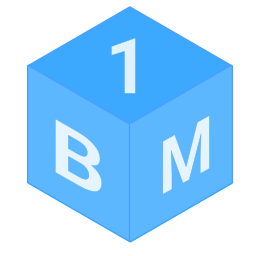Making the most of OneBoxBM - Client Admin
In this post we'll be taking a look at the client admin area in OneBoxBM.
This is part of a series of posts that’s designed to help you get the most out of OneBoxBM, to view the index click here.
In OneBoxBM client management is split between the client management area and the admin area.
To make your life easier we’re only going to cover the admin area in this post, which includes:
- Client Groups
- Document Types
- Shared Document Types
Note: We’ve also put together some useful help guides to help you manage your client data; we’ll reference the specific guides in each section.
Note: Throughout this series we'll often use a restaurant as an example, now OneBoxBM isn't a meal order/take away service; by which we mean that we don't offer a way to allow you customers to order from a menu.
We do however still feel that we do have something to offer for those of who do run a restaurant.
Client Groups
Note: You can view the relevant help guide for the 'Client Groups Manager’ at the following link.
Client groups are used as a means of grouping clients together, while you can have as many client groups as necessary, each client may only have a single group.
Note: We may look to change this further down the line, so that clients can be assigned to as many groups as necessary.
Now if we take a restaurant as an example then our use case would be somewhat limited, as you're unlikely to capture customer data on a regular basis.
That being said you could still have:
- Feedback
- Incident
- Other Customers
The idea here being that you would be capturing the reason behind storing the customers data.
Lets say a customer slips and falls chances are your going to want to record the customers details, sure you might have an accident or incident book but you're still going to want to store their other details somewhere. In this case you would create the customer record under the 'Incident' category.
This helps not only identify why the data is being stored it also allows you to filter and group your client records within OneBoxBM.
Document Types
Note: You can view the relevant help guide for the ‘Document Types Manager’ at the following link.
Document types are used as a way of grouping client documents; each client document can only be assigned one type, but document types can have many documents stored under them.
If we use a restaurant as an example, we could have the following:
- Feedback
- Incident Report
- Customer Order
Shared Document Types
Note: You can view the relevant help guide for the ‘Shared Document Types Manager’ at the following link.
Shared Document types are used as a way of grouping shared client documents; each document can only be assigned one type, but document types can have many documents stored under them.
If we use a restaurant as an example, we could have the following:
- Policy
- GDPR
As much as OneBoxBM isn't a meal order/delivery service, we feel that it's still possible to make it work on a smaller scale.
Lets say you offer a variety of hot and cold sandwiches/baguettes, some of the other businesses in the local area have expressed interest in making a regular order.
Now your not wanting to go all in and start offering an online menu that customers can use to place an order then arrange for pickup or delivery, but you still feel that it could be a good business opportunity.
If we take a look at the above, we could setup our admin area in a way that makes this work. Not only do you have means of identifying which customers are using the service you also have the ability to store various documents by type against both the client/customer and all clients/customers.
We hope this gives you some additional insight into how to make better use of OneBoxBM to manage your client data.
In Summary
- Client Groups
- You can assign each client to a group, allowing you to organise them by type, priority and/or by their parent company/group.
- As it stands each client can only be assigned to a single client group at any one time; we may look to amend this in a future update.
- Document Types
- You can store multiple documents against each client, not only that you can group them by document type.
- The system supports multiple document types including, PDF, Word, Excel, Jpg and Png; the only restriction is that the document is under 5MB in size.
- Shared Document Types
- You can use shared client documents to store all of your key policy documents and any materials you may need to hand out to clients in one place.
- The system supports multiple document types including, PDF, Word, Excel, Jpg and Png; the only restriction is that the document is under 5MB in size.
- Shared client documents can be accessed from both the 'Client Management' area and any computer or device with 'Terminal' access.
